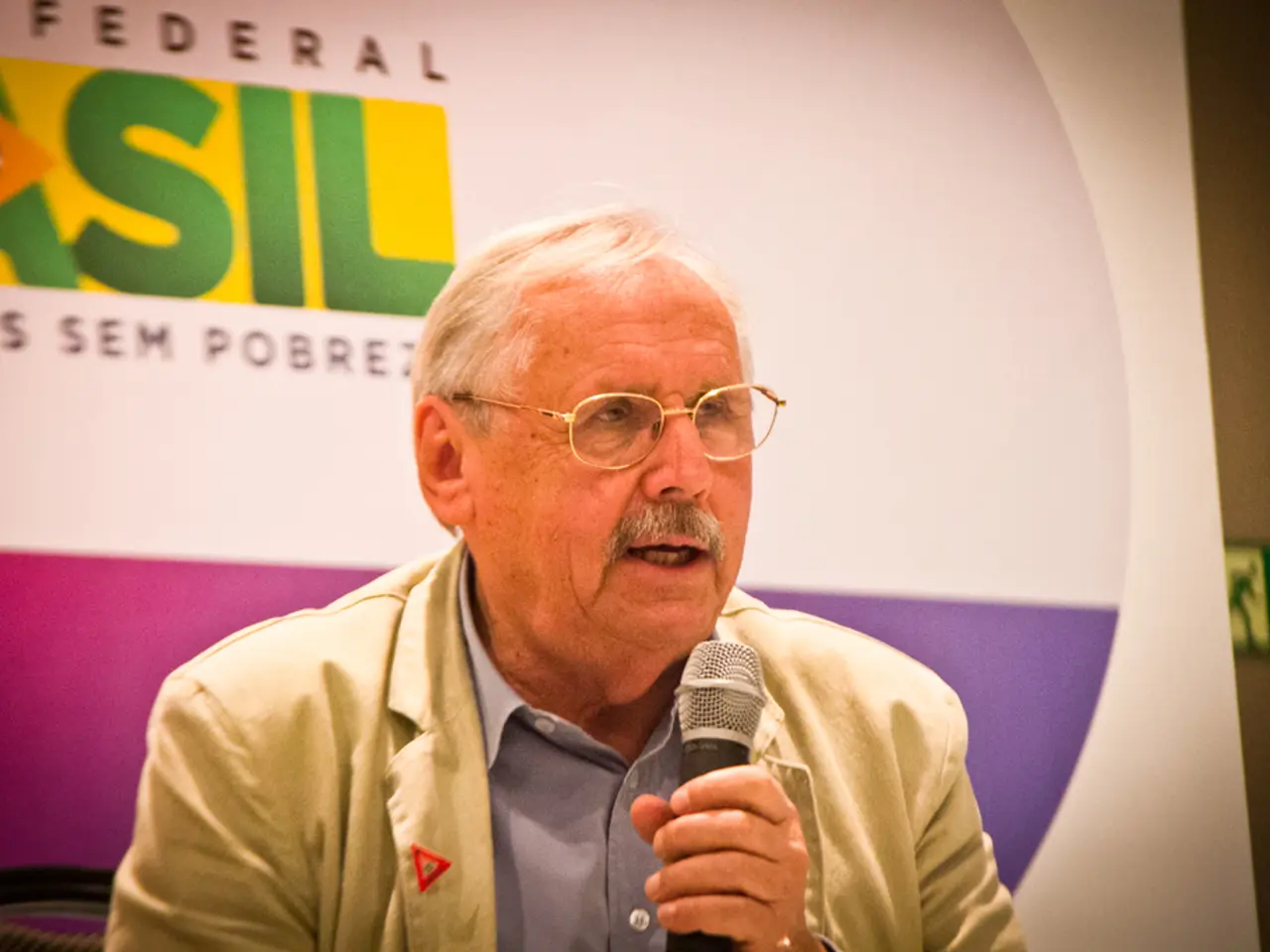Administration's reductions in foreign aid funding endanger the increasing practice of providing cash assistance directly.
In a significant move, the Trump administration's cuts to U.S. foreign aid, including development assistance for health (DAH), have had a detrimental effect on cash transfer programs and broader poverty alleviation efforts in Mozambique.
The reductions in funding have strained programs aimed at supporting vulnerable populations, including cash transfers that are critical for poverty reduction. The cuts, amounting to a 67% drop (over $9 billion) in U.S. health financing between 2024 and 2025, have reduced the U.S.'s contribution, historically about 35% of global development assistance for health.
Mozambique, one of the poorest countries and heavily reliant on these funds, has experienced severe impacts, with health spending cuts up to 16.5%. This reduction likely affected U.S.-backed poverty reduction programs such as cash transfers, nutrition, and direct support to vulnerable groups.
The cuts also reflect the broader politicization of aid that emerged during this period, shifting formerly bipartisan support for global health and poverty programs into politically contentious territory. The reduction in foreign aid led to broader ramifications for UN programs and humanitarian efforts, as the U.S. began pulling funding from UN bodies and global relief efforts.
One individual who has felt the impact of these cuts is Isac Luis, a resident of a rural village in Mozambique. Before the cuts, Isac operated a barbershop with the help of cash assistance from USAID through the nonprofit GiveDirectly. The assistance enabled him to improve his business and no longer live in poverty.
Before the barbershop opened, Isac's income was insufficient, but now he states that his life weighs 2 or 3 kilograms more due to the cash assistance. USAID formally embraced the strategy of direct cash aid last fall, in part due to evidence that cash transfers can improve people's lives by putting more money in their pockets, helping them buy better food, save more, and afford healthcare.
However, the Trump administration's cuts have impacted GiveDirectly, one of the biggest players in cash assistance, significantly. The organization was supposed to help thousands more people like Isac with $20 million from the U.S. government, but the administration began cutting aid.
Some advocates are trying to argue for cash aid to lawmakers on both sides of the aisle due to these massive cuts to foreign assistance. Daniel Handel, from the nonprofit Unlock Aid, advocates for foreign assistance reform and supports cash transfers as a promising approach. Yolande Wright, from GiveDirectly, states that cash aid can do more with less aid spending.
Despite the administration's move away from cash assistance, advocates see an opening in the Trump administration's line of thinking, suggesting that giving people cash can cut out the bureaucratic middleman. Humanitarian agencies previously balked at the idea of giving people cash out of fear that recipients would misspend it, but studies show that cash transfers have undeniable, positive impacts.
References:
- NPR, "Trump's Foreign Aid Cuts Constrain Mozambique's Poverty Alleviation Efforts", [link to article]
- NPR, "Trump Administration's Health Financing Cuts Affect Mozambique", [link to article]
- NPR, "U.S. Aid Cuts Impact UN Programs and Humanitarian Efforts", [link to article]
- NPR, "PEPFAR Faces Moderate Cuts Under Trump Administration", [link to article]
- NPR, "Cash Transfer Programs Face Funding Reductions under Trump Administration", [link to article]
- The Trump administration's cuts to foreign aid, particularly in health financing, have raised concerns in the realm of general news, as they have significantly strained cash transfer programs and broader poverty alleviation efforts in countries like Mozambique.
- The reduction in U.S. funding for global development assistance for health (DAH) has not only affected cash transfer programs but also business and political discussions, as advocates argue for cash aid to lawmakers on both sides of the aisle, viewing it as a promising approach to poverty reduction.
- The politicization of aid during this period has led to changes in government policies, with the Trump administration's cuts to foreign aid impacting various UN programs, humanitarian efforts, and even specific business ventures, such as cash transfer programs run by organizations like GiveDirectly.




